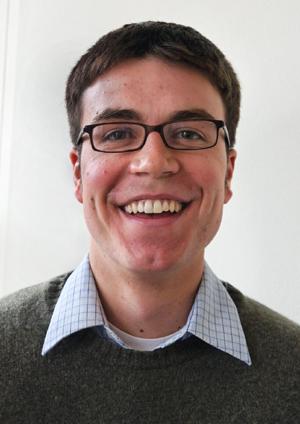
By Michael Rossmann, SJ
A conference at Fordham University entitled “From Campus to Parish: Where Did the Young People Go?” grabbed my attention recently. I have visited many parishes in promoting an initiative reaching out to young adults, and while I have read studies showing how relatively few young adults closely identify with the Church in belief and practice, I find it particularly disheartening to see how few people my age often go to Mass, for example.
Besides being concerned about the relatively few 20- and 30-somethings in attendance, I have been struck by how foreign young adult ministry can seem to people. Even when I say that I am organizing retreats for “young adults,” I have encountered many people who simply assume that I am only talking about high school or college students — groups certainly in need of much evangelization, though by no means the only ones.
When one is out of school and no longer connected with youth groups and Newman centers, for example, the absence of events and opportunities particularly attractive to young professionals can be a challenge. Even the first website one encounters after searching for “Catholic young adults” seemingly has not been updated for several years, as one is immediately greeted with a link for an event in 2007. This is, of course, a website meant to connect with a generation of people who often check their e-mail hourly or more.
There are certainly many obstacles to connecting with young adults today. They marry later in life, are more mobile, and oftentimes did not receive the same religious education of previous generations. They live in a society with a lot of noise and one that is frequently not supportive of someone trying to integrate her faith. Frequently encountering negative stories about the Church in the media does not help.
Plus, in a diocese like Davenport, we do not have the large concentrations of young adults in particular areas — and the “young adult parishes” that can develop out of this — that large cities have. If a young adult walks into a parish where there are few people his age and where there are not parish events or groups particularly directed at those in his stage of life, he may not feel at home.
My generation can appear to be greatly individualistic. But, in spite of — or perhaps because of — the culture in which we have grown up, I sense a deep yearning for community. Even with the desire to belong to something greater than themselves and with an interest in the spiritual life, a significant number of young adults self-identify as “spiritual but not religious.” Many of those who were baptized Catholic do not see the Catholic Church or any institution as the community to which they belong. Thirty to 40 percent of today’s American young people are “nones” — those who claim no religious affiliation. Much work needs to be done.
At the same time, I continue to meet young adults who, despite all the potential obstacles, are really on fire with their faith. As I give retreats to young adults this summer, I meet inspiring people who see the Church as deeply relevant to their modern lives and are hungry for further spiritual nourishment. I continue to be humbled, too, by the commitment to service and the effort to put faith into action that many young people today embody.
There are also initiatives in many areas directly targeted at young adults that have been effective, such as Theology on Tap programs, whereby a bunch of young adults meet at a bar to hear a presentation on some aspect of our faith and then have an opportunity to have a serious discussion in a relaxed atmosphere. Signs of hope and innovative efforts are going on in many places.
I write this not to bemoan my generation for falling away from the Church, but to contribute to a discussion whereby we take a serious look at what we are doing to connect with young adults today and try to see what works and what does not work. There is hope, but much work to be done.
(Michael Rossmann is a Jesuit scholastic at Loyola University Chicago and a 2003 graduate of Regina Catholic Education Center in Iowa City. He can be contacted at rossmann.michael@gmail.com).








